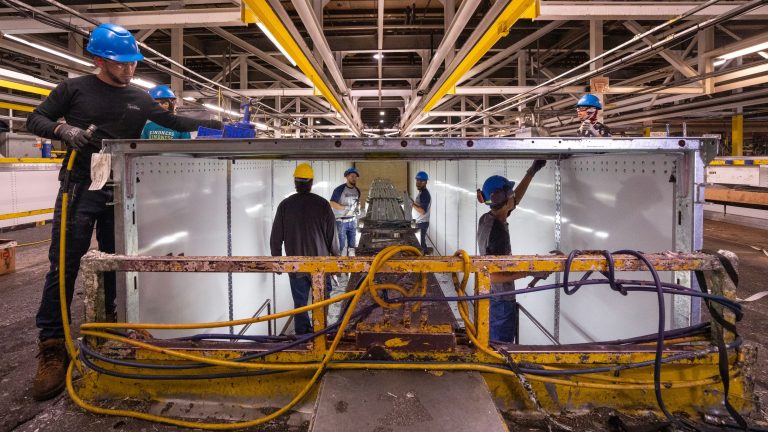This article has been updated with additional information.
In response to unfair trade practices, 86% of Wisconsin business leaders support President Donald Trump’s plan to impose tariffs on goods imported from China, according to a new poll by Wisconsin Manufacturers & Commerce.
“Wisconsin is a manufacturing and agricultural state. We make, grow and process things and we want to sell them around the world. But business leaders say we need our business partners to follow the rules,” Kurt Bauer, WMC president and CEO, said in a statement.
Tariff supporters say import fees, when applied prudently, can protect U.S. industries from unfair foreign competition.
However, they can make it more expensive to produce goods using raw materials and components from outside the United States. Additionally, when other countries retaliate by imposing their own trade sanctions, it hurts sales of U.S. products in those markets.
Need a break? Play the USA TODAY daily crossword puzzle.
In the WMC survey, 50% of respondents said the rate increase would negatively impact their business; 26% said it would be positive and 24% said it would have no impact.
The poll showed that 56% of business leaders oppose tariffs on Mexico and Canada, two of Wisconsin’s largest trading partners.
Still, 73% support Trump’s plan to use tariffs as a negotiating tactic to slow illegal immigration to the United States.
The results show that 89% of business leaders support immigration reform that begins with securing the U.S. southern border.
Ninety-six percent support increasing the 85,000-person cap on H-1B visas, which targets foreign workers with specialized skills.
“WMC has been advocating for reform of the guest worker program for some time. Demographic trends show Wisconsin needs workers now and well beyond mid-century. Foreign workers must be part of the solution or our state will lose jobs and the economic activity that comes with them,” Bauer said.
On taxes, 97% of respondents favor making provisions of the Tax Cuts and Jobs Act of 2017 (TCJA) permanent.
Ninety percent support lowering the U.S. corporate tax rate for manufacturers to 15 percent.
The biannual employer survey by Wisconsin Manufacturers & Commerce, the state’s largest trade organization, provides insight into where business leaders stand on important issues and their economic outlook. The recent survey targeted 153 employers who constitute a representative sample of WMC members.
Manufacturing is Wisconsin’s largest economic sector, accounting for nearly $72 billion in GDP annually, according to Wisconsin Manufacturers & Commerce.
A new study commissioned by the National Association of Manufacturers says failure to renew the TCJA’s expiring tax provisions will cost Wisconsin 110,000 jobs, $10 million in employee wages and $19.5 billion in domestic product gross from the manufacturing sector alone.



